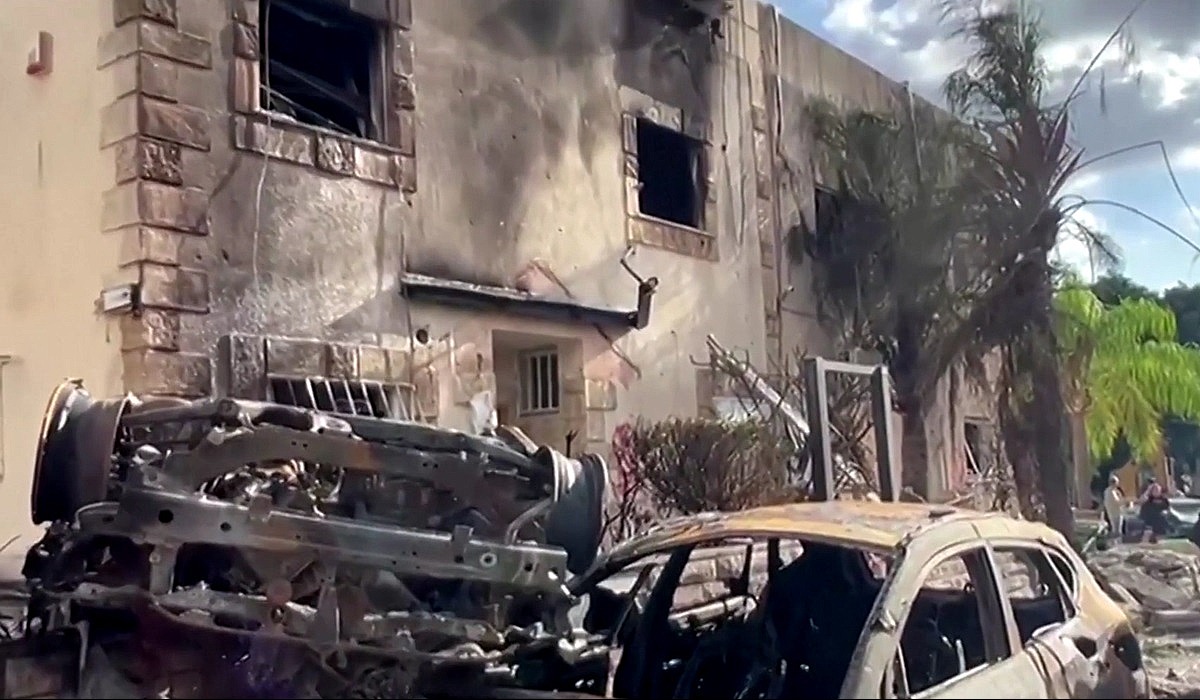Israel’s Lebanon Airstrikes: Could This Escalation Lead to a Full-Scale Conflict?
- Ingrid Jones
- Africa
- Middle East
- Trending
- September 23, 2024

The escalating violence between Lebanon and Israeli forces has raised serious concerns about regional stability and the humanitarian toll on civilians. In response to recent bombings, Hezbollah launched over 100 rockets into Israeli territory. Both sides claim to target military assets, but the intensifying conflict is driving the Middle East toward a dangerous tipping point. A key question now is how long the American-backed Israeli Defense Forces (IDF) can sustain military campaigns on multiple fronts.
Jan Egeland, Secretary General of the Norwegian Refugee Council (NRC), expressed grave concern over the airstrikes. He noted that the bombardment of civilian areas in southern and eastern Lebanon marks the most intense wave of violence in nearly a year. Entire neighborhoods have been leveled, and families were given only a few hours to flee. Many are heading to Beirut, which is already struggling with the country’s ongoing economic and political crises.
The humanitarian situation in Lebanon is worsening quickly. Already home to over 1.5 million Syrian and Palestinian refugees, the country is seeing thousands more displaced due to recent bombings. The NRC, which provides aid to displaced populations, fears that continued military action could cripple its ability to deliver relief. Egeland urged an immediate de-escalation, calling on all parties to halt attacks on civilian areas. He warned that escalating hostilities could spark a broader regional conflict.
This violence has alarming implications for the broader Middle East. The IDF, with substantial backing from the United States, is already engaged in ongoing operations in Gaza. A full-scale conflict with Hezbollah could stretch its military capabilities thin, raising doubts about how sustainable simultaneous military engagements are, particularly with U.S. support being tested in other global arenas.
Lebanon’s fragile state further complicates the situation. The country’s economic collapse, political instability, and the influx of refugees leave it ill-prepared for further destruction. The Lebanese Ministry of Health has reported 182 deaths and more than 700 injuries from the most recent airstrikes, and the humanitarian toll continues to rise as thousands flee their homes.
The international community, especially key powers in the Middle East and beyond, must act quickly to mediate a ceasefire and prevent the conflict from escalating further. With ongoing tensions in Gaza, the West Bank, and now Lebanon, the strain on the IDF could become significant. The continued military actions in densely populated areas increase the risk of civilian casualties and further complicate diplomatic relations across the region.
There is an urgent need for dialogue and de-escalation before the situation spirals out of control. The ongoing strikes and retaliatory attacks are not only causing devastating damage to civilian populations but also deepening long-standing regional hostilities. While the military capabilities involved are formidable, the human and political cost of prolonged conflict may prove unsustainable.
Diplomacy, not continued violence, must take center stage. The ongoing cycle of mutual retaliations cannot persist without risking further destabilization in the Middle East. The international community, particularly the U.S., has a crucial role to play in brokering peace and ensuring that all parties prioritize civilian safety over military objectives. Without concerted efforts to achieve a ceasefire and promote dialogue, the possibility of a broader, more destructive conflict looms large.








